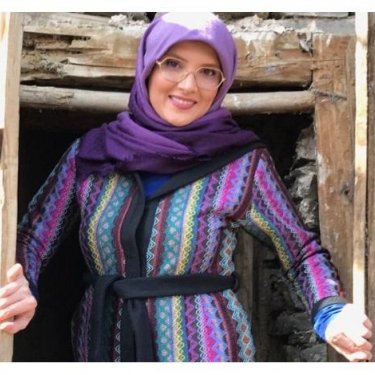After Hengameh Shahidi’s pardon, RSF asks Supreme Leader to free all imprisoned journalists

Following journalist Hengameh Shahidi’s pardon and release yesterday, after being held for two years, Reporters Without Borders (RSF) asks Supreme Leader Ali Khamenei to release all journalists who are imprisoned in the Islamic Republic.
“I am free as of today,” Shahidi said in video posted on Twitter yesterday in which she not only broke the good news of her release but also provided an account of how it came about.
“Following my protests against the false accusations and unjust 12-year prison sentence of which I was the victim, the office of Islamic Revolution Supreme Leader Ali Khamenei appointed a commission of inquiry to verify my case file,” she said. “After investigations, it concluded that the charges and proceedings leading to my conviction, carried out in particular by former Tehran prosecutor Abbas Jafari Dolatabadi, former judiciary chief Sadegh Amoli Larijani and certain other judicial officials, were unfair, abusive and illegal.”
The editor of the Paineveste blog, Shahidi was arrested as she was leaving hospital on 25 June 2018 and was given a 12-year jail sentence on 1 December 2018 at the end of a trial held behind closed doors. She was convicted in connection with her revelations about injustices within the judicial system and her criticism of Larijani, its then boss. A Tehran appeal court confirmed the sentence in May 2019. Despite being in very poor health, she spent 13 months in solitary confinement.
“We hail the release of a journalist who just did her job and who should never have spent a single day in prison,” said Reza Moini, the head of RSF’s Iran/Afghanistan desk. “Her release sets a judicial precedent and we call for it to be applied to every journalist imprisoned since 2009, the year that the Supreme Leader appointed Sadegh Amoli Larijani as head of the judiciary and Abbas Jafari Dolatabadi as Tehran chief prosecutor.”
RSF points out that Iran’s justice system is not in any way independent. It is controlled by the Supreme Leader who, under article 110 of the constitution, appoints the head of the judiciary. Larijani was chosen in 2009 in order to organize the crackdown on the protests against President Mahmoud Ahmadinejad’s reelection. In the course of ten years, the duration of his two terms, more than 300 journalists and citizen-journalists were arbitrarily arrested and given long jail sentences at the end of unfair trials.
Although Larijani was fired in 2019 during a war of succession at the regime’s summit, Khamenei continues to be Iran’s leading press freedom predator and responsible for the suppression of fundamental freedoms in Iran. Pardoning a journalist makes no difference to the essential nature of what is one of the world’s most repressive regimes as regards the freedom to inform.
Iran is ranked 173rd out of 180 countries in RSF's 2020 World Press Freedom Index.



